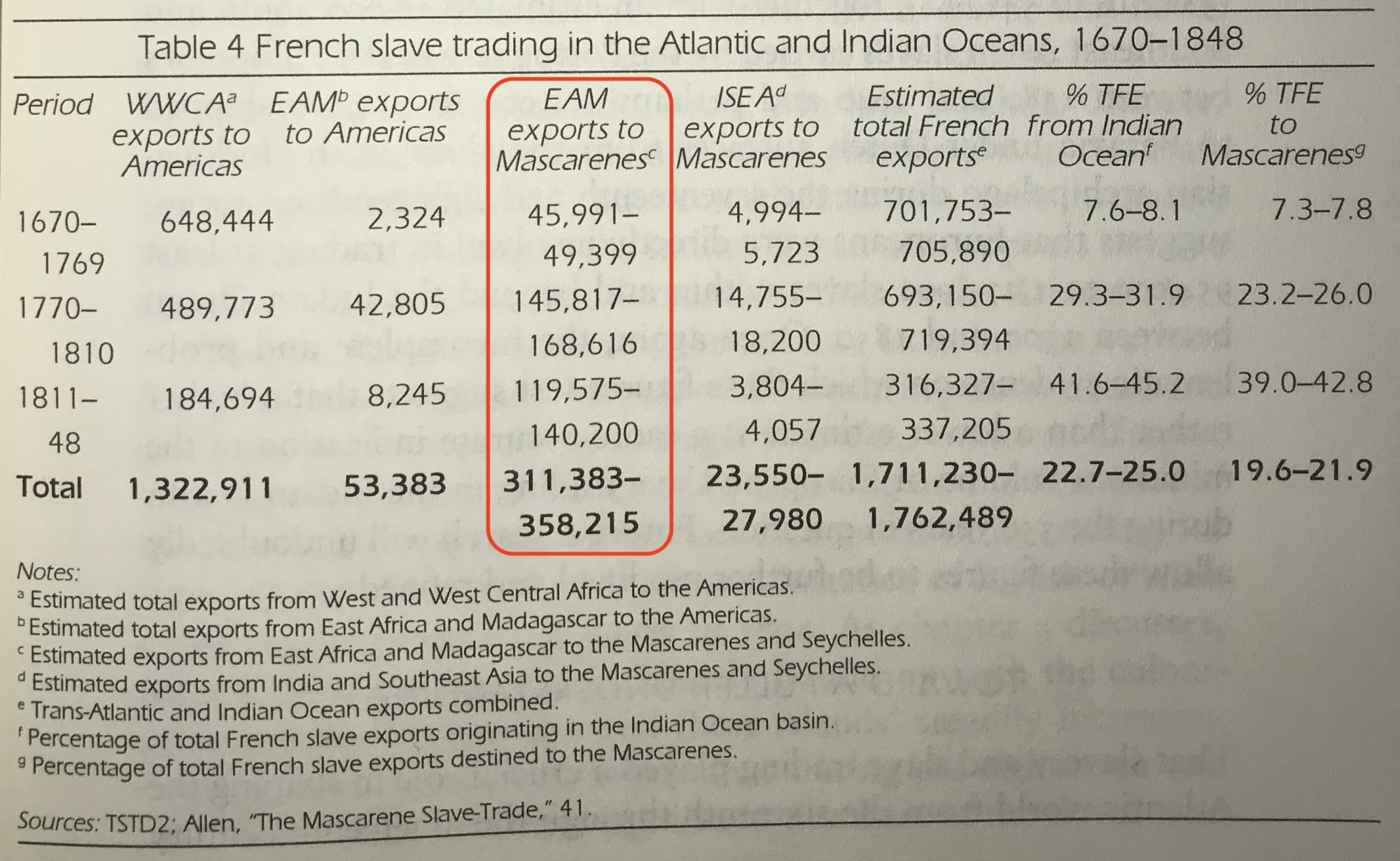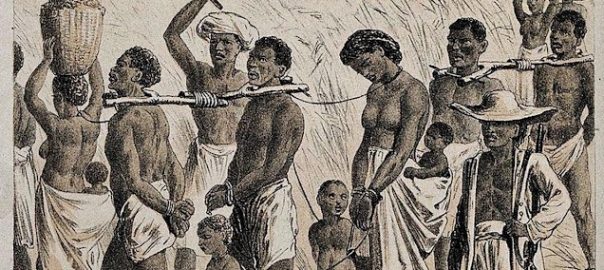The French and the Anglo-Saxons have gotten into a big pissing match over Australia’s decision to nix a longstanding contract for French-built submarines in favor of a bigger one with the United States (with some UK involvement), for nuclear-powered subs, instead. The French have been understandably miffed by the loss of this substantial contract, and by the underhanded way the Anglo-Saxons did their deal behind France’s back. The French foreign minister (and perhaps Pres. Macron himself?) has made lots of statements about “France’s historic position in the Indo-Pacific”, with “two million French citizens living there”, etc.
Vietnam, anyone?
Well, in addition to France’s “historic” position in Vietnam and Cambodia, France also had a longstanding base in Pondicherry in southern India. But perhaps most significantly, the French were the leaders in their “historic” conduct of the trade in enslaved persons in the Indo-Pacific region in the period 1500–1850 CE.
I have just been reading Richard B. Allan’s 2014 book European Slave Trading in the Indian Ocean, 1500–1850. This locus for the transoceanic slave trade run by Western imperial powers has been far less studied than the transatlantic slave trade; and the numbers available in the records reflect more uncertainty than the numbers now available for the transatlantic trade. But in Table 4 (p.23) of his book, as shown below, Allen estimates that between 1670 and 1848, French companies and ships shipped between 311,383 and 358,215 enslaved people from East Africa and Mozambique (EAM) to the Mascarene Islands — that is, Réunion, Mauritius, and a smaller island called Rodrigues.

In another table, p.18, Allen estimates that around 75% of all the enslaved people trans-shipped by the various European imperial powers within/across the Indian Ocean were shipped by the French.
Of those three islands, Réunion is still part of France. Mauritius and Rodrigues were French until 1810, when Britain took them over and abolished the importation of enslaved persons (though indentured persons still came, I think.)
As for Réunion, English-Wikipedia tells us this:
The abolition of slavery voted by the [French] National Convention on February 4, 1794, was rejected by Reunion Island, as well as by the Ile de France (Mauritius). A delegation accompanied by military forces, charged with imposing the liberation of slaves, arrived on the island of Bourbon on June 18, 1796, only to be immediately expelled without mercy. There followed a period of unrest and challenges to the power of the metropolis, which no longer had any authority over the two islands. The First Consul of the Republic, Napoleon Bonaparte, maintained slavery there, which was never abolished in practice, with the law of May 20, 1802.
Slavery and the importation of enslaved persons remained legal there until 1848.
(The banner image above is a historic engraving of a slave market in Mauritius.)
